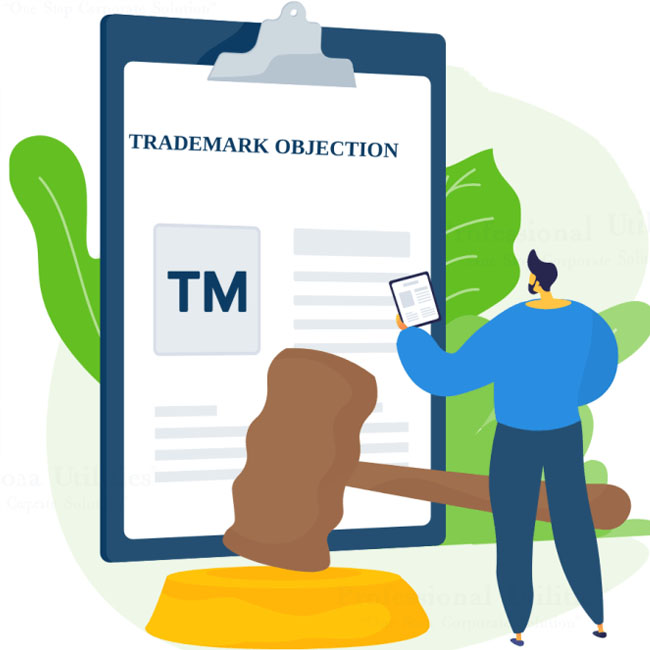
Trade Mark Objection
Trademark objection is a process where the Trade Marks Registry raises an objection to the registration of a trademark. The objection can be raised for a number of reasons, such as the trademark being similar to an existing trademark, being descriptive in nature, or being against the public interest. The objection can be raised by the Examiner during the examination process or by a third party during the opposition process.
If a trademark objection is raised, the owner of the trademark has the opportunity to respond to the objection within a specific period of time. The response should address the concerns raised in the objection and provide evidence to support the registration of the trademark. The response can be filed online or in person at the Trade Marks Registry.
The response to the trademark objection should include the following:
- A statement of facts: The response should provide a clear and concise statement of the facts regarding the trademark and its intended use. It should explain the meaning of the trademark and how it is different from other trademarks.
- Evidence: The response should provide evidence to support the registration of the trademark. This could include market research, sales data, customer feedback, or any other relevant information that demonstrates the distinctiveness of the trademark.
- Legal arguments: The response should include legal arguments to support the registration of the trademark. This could include arguments based on case law or the Trade Marks Act, 1999.
- Amendments: If the objection is based on specific issues with the trademark, such as the description or wording, the response can include amendments to the trademark to address these issues.
Once the response to the trademark objection is filed, the Examiner will review the response and make a decision. If the Examiner is satisfied with the response, the trademark will proceed to registration. If the Examiner is not satisfied with the response, a hearing will be scheduled where the trademark owner can present their case in person.
In summary, trademark objection is a common occurrence during the trademark registration process. It provides an opportunity for the Trade Marks Registry to ensure that the trademark meets the legal requirements for registration and does not conflict with existing trademarks. A well-prepared response to the trademark objection can help to ensure that the trademark is registered and provides legal protection for the brand.

